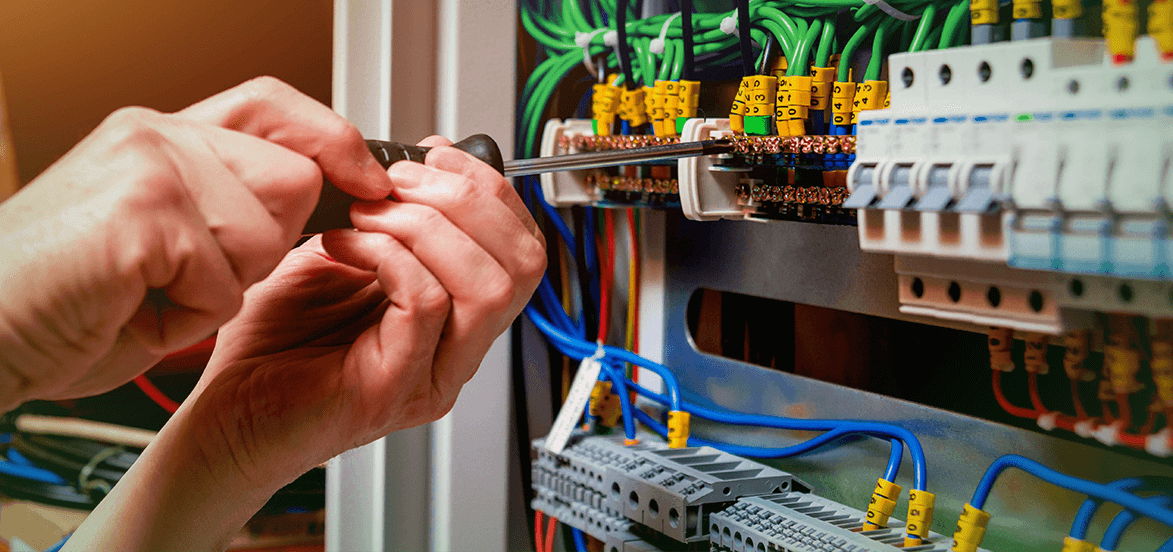Electricity is a fundamental part of our daily lives, powering everything from household appliances to industrial machinery. However, electrical issues can arise at any time, often without warning. They can pose serious risks to both property and personal safety. This is where emergency electricians come into play. They are the unsung heroes who respond quickly to electrical emergencies, ensuring that problems are resolved safely and efficiently.
What Is an Emergency Electrician?
An emergency electrician is a licensed professional who is available 24/7 to handle urgent electrical problems. Unlike regular electricians who may work standard hours, emergency electricians are on call around the clock, ready to assist in critical situations that require immediate attention.
These professionals are trained to diagnose and repair a wide range of electrical issues, from power outages and faulty wiring to more complex problems like electrical fires or circuit overloads. Their ability to respond quickly can prevent minor issues from escalating into major hazards.
When to Call an Emergency Electrician
Knowing when to call an emergency electrician can make all the difference in preventing damage or injury. Here are some common situations that warrant immediate professional help:
1. Power Outages
Suppose your home or business experiences a sudden power outage, and you’ve ruled out issues with your utility provider. In that case, it may be a sign of an internal electrical problem. This could be due to a tripped circuit breaker, faulty wiring, or an overloaded system. An emergency electrician can quickly diagnose the cause and restore power safely.
2. Electrical Shocks
Suppose you or someone else experiences an electrical shock when touching an appliance or switch. In that case, this is a clear indication of a serious issue. Electrical shocks can be caused by faulty wiring, poor grounding, or damaged equipment, all of which require immediate attention from a professional to prevent further injury or potential fire hazards.
3. Burning Smell or Smoke
A burning smell or visible smoke coming from outlets, switches, or appliances is a sign of an electrical fire or overheating. In such cases, it’s crucial to turn off the power at the main switch and call an emergency electrician right away. Delaying could result in a fire spreading quickly, causing significant damage and endangering lives.
4. Flickering or Dimming Lights
While flickering lights might seem like a minor annoyance, they can be indicative of a larger electrical problem. This could be due to a loose connection, an overloaded circuit, or an issue with the electrical panel. If multiple lights are flickering or dimming simultaneously, it’s best to call an emergency electrician to assess the situation.
5. Tripped Circuit Breakers
Circuit breakers are designed to protect your electrical system by shutting off power when a circuit becomes overloaded. However, if your breakers are tripping frequently, this could indicate a serious underlying issue, such as faulty wiring or an overloaded system. An emergency electrician can identify the root cause and make the necessary repairs to prevent future incidents.
6. Water Damage and Electrical Equipment
Water and electricity are a dangerous combination. Suppose your property has experienced flooding or water damage, and you suspect that electrical components have been affected. In that case, it’s crucial to call an emergency electrician immediately. Water can cause short circuits, corrosion, and even fires if it comes into contact with electrical wiring or appliances.
7. Sparking Outlets
Suppose you notice sparks when plugging in or unplugging devices. In that case, this is a clear sign of a potentially hazardous electrical problem. Sparking outlets can be caused by a variety of issues, including loose wiring, a short circuit, or outdated components. An emergency electrician can inspect the outlet and fix the problem before it escalates.
What to Expect When You Call an Emergency Electrician
When you contact an emergency electrician, you can expect a swift response, typically within a few hours, depending on your location. Here’s what the process generally involves:
1. Initial Assessment Over the Phone
When you call, the electrician or their dispatcher will ask you a series of questions to understand the nature of the emergency. They may inquire about any symptoms you’ve noticed, such as smells, sounds, or visible damage. This helps them prepare for the situation and bring the necessary tools and equipment.
2. On-Site Inspection
Once the electrician arrives, they will conduct a thorough inspection of the affected area. This may involve checking the electrical panel, outlets, wiring, and any appliances that are involved. The goal is to quickly identify the root cause of the problem.
3. Immediate Repairs
If the issue is straightforward, the emergency electrician will typically perform repairs on the spot. This might include replacing faulty wiring, resetting circuit breakers, or repairing damaged outlets. In more complex cases, they may need to shut off power to certain areas to ensure safety before conducting more extensive repairs.
4. Safety Checks
After the repairs are completed, the electrician will perform safety checks to ensure that the problem has been fully resolved and that there are no lingering hazards. They may also provide recommendations for additional work if they identify potential risks that could lead to future emergencies.
5. Clear Communication and Advice
A professional emergency electrician will explain the situation to you in clear, understandable terms. They’ll let you know what caused the issue, what they did to fix it, and any steps you should take to prevent similar problems in the future. This might include upgrading your electrical panel, replacing old wiring, or simply being more mindful of how you use certain appliances.
How to Choose a Reliable Emergency Electrician
In an emergency, you want to be sure you’re calling someone who is trustworthy and experienced. Here are a few tips for choosing the right emergency electrician:
1. Look for Licensing and Certification
Always ensure that the electrician is licensed and certified to perform electrical work in your area. This guarantees that they have the necessary training and knowledge to handle your emergency safely and effectively.
2. Check Reviews and Recommendations
If you have time, take a moment to check online reviews or ask for recommendations from friends or family. A reputable emergency electrician should have positive feedback from previous customers.
3. Ensure 24/7 Availability
An emergency electrician should be available around the clock, so make sure the service you’re considering offers 24/7 emergency support. Electrical issues don’t keep regular business hours, so neither should your electrician.
4. Inquire About Response Time
Ask about the typical response time for emergency calls. In a true emergency, every minute counts, so you want to choose a service that can arrive promptly.
5. Get an Estimate
While it’s difficult to get an exact quote without seeing the problem firsthand, a good electrician should be able to give you a general idea of the costs involved. This helps you avoid any surprises when the bill arrives.
Frequently Asked Questions (FAQs) About Emergency Electricians
1. What qualifies as an electrical emergency?
An electrical emergency typically involves situations where there is a risk of fire, injury, or significant property damage. Examples include power outages, electrical shocks, burning smells, sparking outlets, and any other issues that require immediate attention to prevent further harm.
2. Can I perform temporary fixes before the electrician arrives?
It’s generally not recommended to attempt temporary fixes unless you have some electrical knowledge and are certain of what you’re doing. In many cases, attempting a DIY repair can make the situation worse or increase the risk of injury. It’s best to turn off power to the affected area and wait for a professional.
3. How long does it take for an emergency electrician to arrive?
Response times can vary depending on your location and the availability of the electrician. Still, most emergency electricians strive to arrive within a few hours of your call. In true emergencies, they may prioritize your situation to get there as quickly as possible.
4. Are emergency electrician services more expensive?
Emergency electrician services often come with a higher cost due to the urgent nature of the work and the need for round-the-clock availability. However, the price is generally worth it when you consider the risks of delaying repairs.
5. What should I do if my circuit breaker keeps tripping?
If your circuit breaker keeps tripping, it’s a sign that your electrical system is overloaded or there’s a fault somewhere in the wiring. Avoid repeatedly resetting the breaker and instead call an emergency electrician to diagnose and fix the issue.
Conclusion
Emergency electricians play a vital role in keeping our homes and businesses safe by addressing electrical issues quickly and efficiently. Whether it’s a power outage, sparking outlet, or electrical shock, these professionals are equipped to handle a wide range of emergencies, ensuring that problems are resolved before they escalate into more serious hazards.
Knowing when to call an emergency electrician and what to expect can make all the difference in how you respond to an electrical crisis. By choosing a reliable, licensed professional, you can rest assured that your electrical emergency will be handled with the utmost care and expertise, keeping you and your property safe from harm. Also want to know about solar energy

